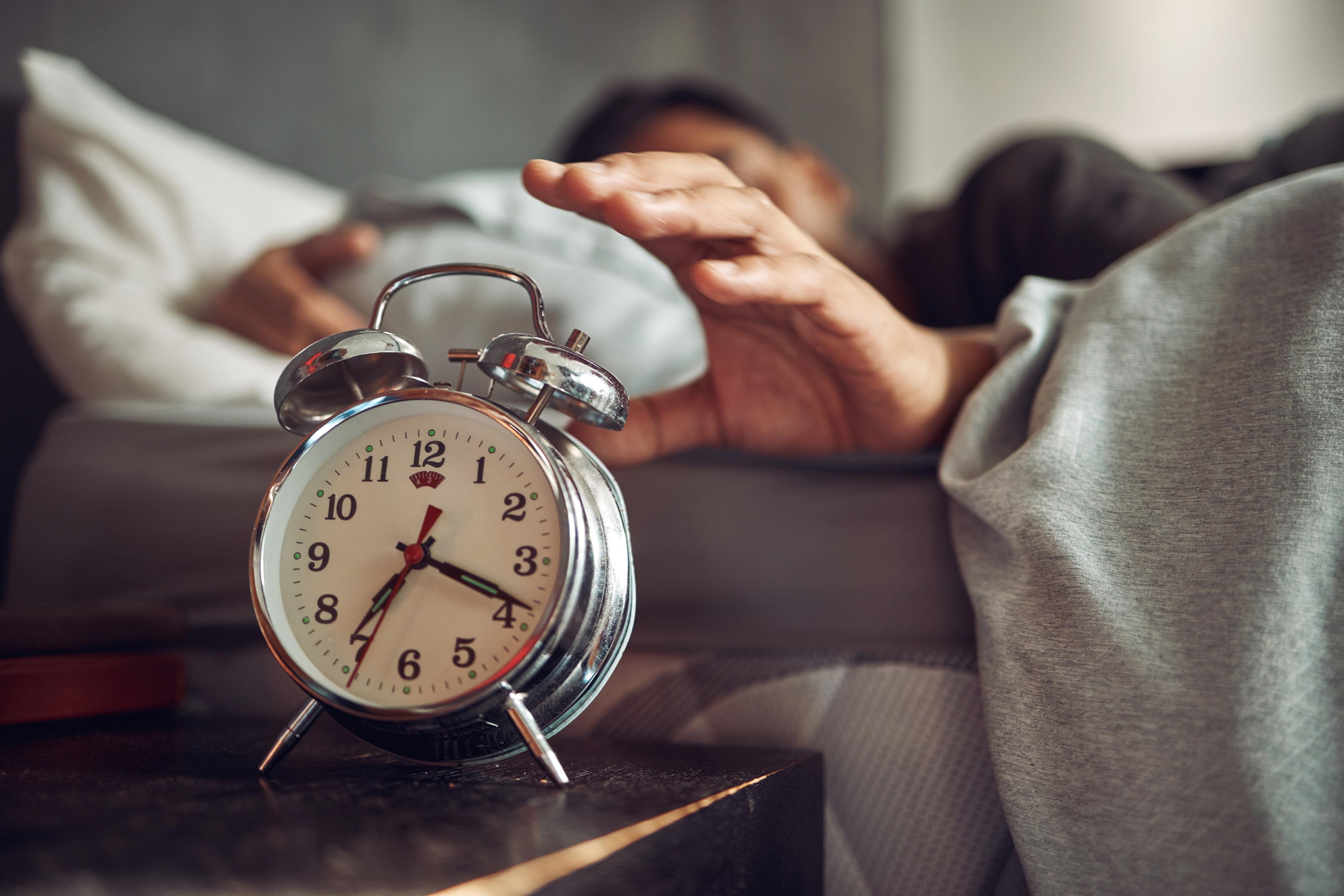How Circadian Rhythms are Connected to Sleep
Amy Barczy
| 4 min read
Amy Barczy is a former brand journalist who authored content at Blue Cross Blue Shield of Michigan. Prior to her time at Blue Cross from 2019-2024, she was a statewide news reporter for MLive.com. She has a decade of storytelling experience in local news media markets including Lansing, Grand Rapids, Holland, Ann Arbor and Port Huron.

The body’s ability to follow a regular sleep cycle is closely tied to its circadian rhythms – natural processes that follow a 24-hour cycle driven by the Earth’s rotation that creates night and day. Light is a big driver of the circadian rhythm that affects when and how we feel sleepy in the dark at night, and feel awake in the light in the daytime.
For humans, circadian rhythms can easily be disrupted – especially with the demands and distractions of modern life. This can lead to difficulty sleeping – which often interrupts and interferes with many other aspects of our mental and physical health.
What are circadian rhythms?
Circadian rhythms don’t only affect the sleep cycle. They also control many of the body’s main processes: they affect when the digestive system creates certain proteins to keep your eating on schedule, and determine when you need more hormones to match your energy use during the day.
Circadian rhythms aren’t unique to humans: almost all living organisms have their own similar biological processes that determine their everyday schedules – which is why some animals sleep during the day and hunt at night. It’s also why some flowers only bloom during the daytime and close their petals at night.
These processes are developed in humans after they are born. Babies come into the world without a functioning circadian rhythm. They must develop that 24-hour cycle as they adapt and learn their new environment in their first four months. In their first few weeks of life, babies begin to perceive a difference between day and night – triggers that affect how their core body temperature fluctuates. This also affects when and how their body releases melatonin and cortisol – two hormonal triggers for the sleep-wake cycle.
Disruptions to circadian rhythms
In most living things, circadian rhythms are controlled by the body’s “master clock.” In humans and other animals with vertebrae, the master clock is a group of 20,000 nerve cells that are in a part of the brain – the hypothalamus – that receives input from the eyes. This is how the body reacts to light and dark, and is the main driver for the body’s circadian rhythms that follow the 24-hour cycle as sun rises and sets with the rotation of the Earth.
Circadian rhythms can be disrupted by frequently changing the time that you go to bed, or wake up. Additionally, air travel across two or more time zones can affect the body’s rhythms. Lack of exposure to sunlight and blindness can also disrupt these patterns. There are additional factors that can play a part: including brain damage from stroke, dementia, head injury or intellectual disabilities. Additionally, older age can interfere with this natural process.
Bad sleep habits can also play a part. Spending your evening working on your laptop, watching TV or scrolling on the phone can expose you to a type of blue light that can disrupt your body’s regular melatonin cycle that helps to trigger your sleep response. Drinking alcohol or eating a heavy meal before bedtime can also affect your body’s processes and keep you from falling asleep.
Circadian rhythm sleep disorders
Some sleep disorders can be tied to disruptions with circadian rhythms. These can include:
- Delayed Sleep Phase Disorder: This occurs if you sleep and wake up more than two hours later than what is considered normal. People with this disorder may not fall asleep until 2 a.m., but can sleep in as late as 3 p.m. This most commonly occurs in adolescents and young adults.
- Advanced Sleep Phase Disorder: This occurs if you fall asleep in the early evening from 6 p.m. to 9 p.m. and wake up early – from 2 a.m. to 5 a.m. This is most common in adults who are middle aged and older.
- Jet lag: When traveling by plane to a different time zone, it’s common for individuals to experience a disrupted sleep-wake cycle as the body’s internal clock is disturbed. Traveling to the east and advancing in time zones is harder than traveling to the west and moving back in time zones: it’s easier to delay sleep than advance sleep.
- Shift Work Disorder: For people who work on a shift schedule or work at night, this can disrupt the natural circadian rhythms – and result in constant or recurrent sleep interruptions that result in insomnia or excessive sleepiness.
- Irregular sleep-wake rhythm: This occurs when there is no defined sleep-wake cycle, and a person may take several naps during a 24-hour period. This most commonly occurs in individuals with dementia, in nursing home residents, in children with intellectual disabilities and individuals with traumatic brain injuries.
- Non-24-hour sleep-wake syndrome: This disorder occurs when the body’s internal clock is longer than 24 hours, which means the sleep-wake cycle occurs at a different time each day and is often delayed by one to two hours. This most commonly occurs in people who are blind.
Difficulty sleeping can cause mental and physical impacts. Take notes of any patterns in sleep issues, and talk with your health care provider about your treatment options.





